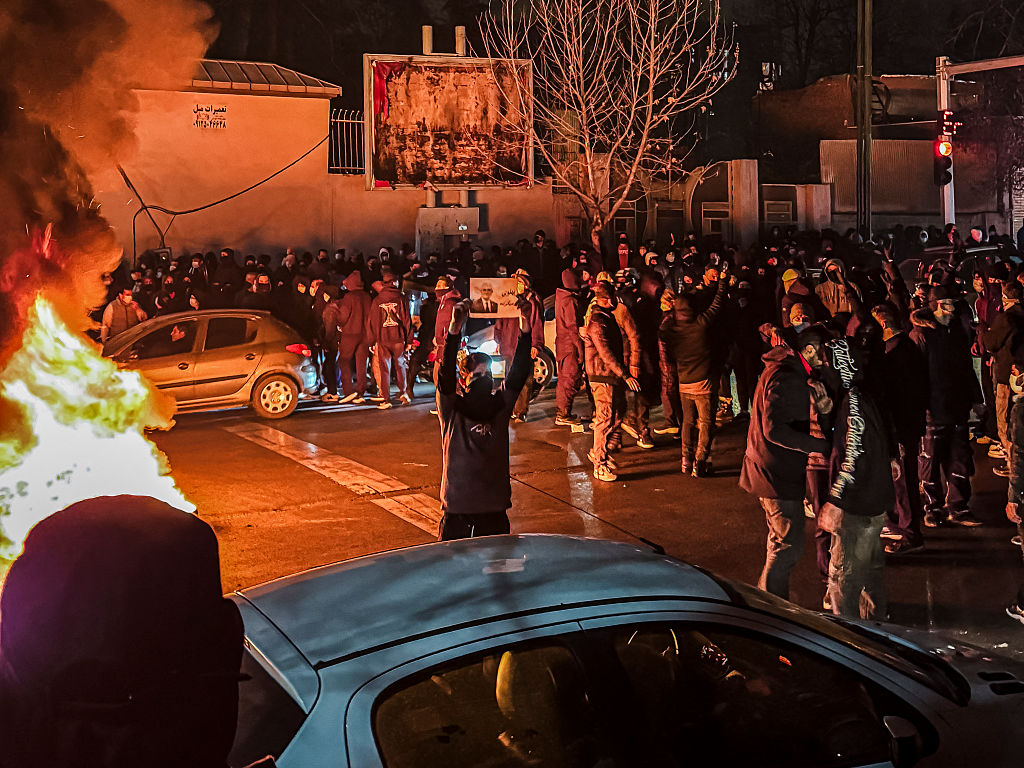How some countries are using the Capitol riots to undermine democracy at home
London — Some foreign officials have begun using Wednesday's riots at the U.S. Capitol, as well as President Donald Trump's own baseless claims of election fraud, to undermine not only American influence, but confidence in the democratic process in their own countries, and even to caution their democratically-minded dissidents.
Brazil
Brazil's populist, far-right President Jair Bolsonaro, long a supporter of President Trump's, said Thursday that it was a lack of trust in the outcome of the U.S. election that led to Wednesday's attack on the Capitol building.
Bolsonaro has echoed Mr. Trump's baseless allegations of fraud in the U.S. election since November's vote and, on Thursday, he repeated baseless claims that his own 2018 victory in Brazil - which he won only after a run-off to decide a razor-thin margin - was tarnished by fraud. He has inaccurately asserted that he should have won the first round of the election outright.
Bolsonaro said, without offering evidence, that Brazil's internationally respected electronic voting system could be susceptible to manipulation. He has been undermining trust in that system while campaigning for a return to paper ballots.
"The problem is mistrust, lack of transparency. There could have been an audit [of the U.S. election], and they didn't do it. They chickened out. People say that this is not our problem, but it is a problem, because we cannot allow that. In 2022, we have an election here, and we are not going to be audited."
Russia
Amid criticism of the U.S. system from members of Russia's ruling party, one senior lawmaker seized the opportunity to directly undercut any campaign for American-style democracy in his own country following Wednesday's Capitol attack.
"We are on the verge of re-evaluating the standards that are being promoted by the United States of America, which is exporting its vision of democracy and party political systems around the world," Vyacheslav Volodin, the speaker of the lower house of Russia's parliament, said on his website.
"Those who in our country like to refer to their [U.S.] example will also have to reconsider the views that are passed off as advanced," continued the close ally of President Vladimir Putin.
Another Putin ally and the head of the international affairs committee in the parliament's lower house, or State Duma, Leonid Slutsky, told reporters that the United States could no longer impose electoral standards on other countries.
"All this threatens to turn into a crisis of the American system of power in the new century," said Slutsky.
Zimbabwe
The United States has maintained sanctions against Zimbabwe in one form or another since 2003, when they were first imposed over undemocratic practices, widespread government-sponsored violence, and human rights abuses.
"The United States shares the same fundamental interest as the Zimbabwean people: a stable, peaceful, democratic Zimbabwe that reflects the people's will and provides for their needs. Our support for the people of Zimbabwe includes ensuring that those Zimbabweans using their positions of power to undermine democratic progress are not benefiting from their actions," says the U.S. State Department in a statement.
"We have made it clear that credible, transparent, and lasting democratic reforms must precede an easing of restrictive measures," continues the statement explaining U.S.-Zimbabwe relations.
When sanctions were extended in March last year, the White House said Zimbabwe "had ample opportunity to implement reforms that could set the country on a constructive path, stabilize the southern African region, and open the door to greater cooperation with the United States. Unfortunately, President Emmerson Mnangagwa's administration has yet to signal credible political will to implement such reforms. Indeed, the Zimbabwean government has arguably accelerated its persecution of critics and economic mismanagement in the past year, during which security forces have conducted extrajudicial killings, rapes, and alleged abductions of numerous dissidents."
On Wednesday, as the angry mob stormed the seat of the U.S. legislature, Mnangagwa said in a tweet that the United States no longer had a leg to stand on.
"Last year, President Trump extended painful economic sanctions placed on Zimbabwe, citing concerns about Zimbabwe's democracy," Mnangagwa said. "Yesterday's events showed that the U.S. has no moral right to punish another nation under the guise of upholding democracy. These sanctions must end."
CBS News' Alexandra Odynova in Moscow contributed to this report.



